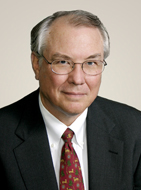© 2012 The Texas Lawbook.
By Natalie Posgate
Staff Writer for The Texas Lawbook
Plano-based Denbury Resources Inc. announced Thursday that it has agreed to sell its Bakken shale assets in North Dakota and Montana to Exxon Mobil Corporation and its subsidiary, XTO Energy Inc.
Denbury is selling these assets in exchange for $1.6 billion in cash and ExxonMobil’s operating interests in Webster Field in Texas and Hartzog Draw Field in Wyoming.

Vinson & Elkins is advising Denbury in the transaction. Leading the deal is Houston partner Tres Cochran, along with senior associates Marc Rose and John Grandin V&E’s Dallas office. Denbury general counsel James Matthews is a former partner at V&E.
Cochran said that the transaction between Denbury and ExxonMobil highlights interesting technological developments in the oil and gas industry because both companies are receiving assets that allow them to use technologies including horizontal drilling, hydraulic fracturing and carbon dioxide flooding. He said that the cash Denbury is acquiring will allow it to develop crude oil production.
“The transaction should be a win-win for all parties and for the development of additional crude oil reserves in the United States,” Cochran said. “V&E brought its highly experienced oil and gas mergers and acquisitions team to assist Denbury across a wide range of issues under very tight time constraints.”
ExxonMobil is not using outside legal counsel for the transaction. Heading the deal for the Irving-based energy giant are XTO’s associate general counsel Warren Ludlow and counsel Jared Pace. ExxonMobil in-house lawyers Walter Hryszko and John Pollio are handling the company’s anti-trust approval matters.
The deal is expected to close toward the end of the fourth quarter. As of Dec. 31, 2011, the proved reserves attributed to Denbury’s Bakken assets that were sold in the deal were around 96 million barrels of oil.
© 2012 The Texas Lawbook. Content of The Texas Lawbook is controlled and protected by specific licensing agreements with our subscribers and under federal copyright laws. Any distribution of this content without the consent of The Texas Lawbook is prohibited.
